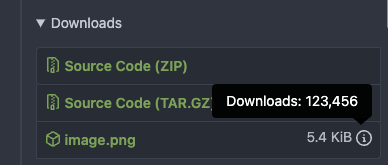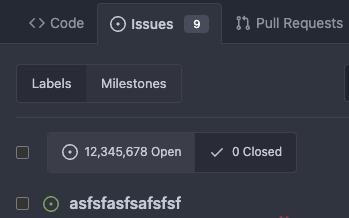mirror of
https://codeberg.org/forgejo/forgejo.git
synced 2025-01-21 16:55:06 -05:00
Follow #21429 & #22861 Use `<gitea-locale-number>` instead of backend `PrettyNumber`. All old `PrettyNumber` related functions are removed. A lot of code could be simplified. And some functions haven't been used for long time (dead code), so they are also removed by the way (eg: `SplitStringAtRuneN`, `Dedent`) This PR only tries to improve the `PrettyNumber` rendering problem, it doesn't touch the "plural" problem. Screenshot:  
243 lines
5.6 KiB
Go
243 lines
5.6 KiB
Go
// Copyright 2017 The Gitea Authors. All rights reserved.
|
|
// SPDX-License-Identifier: MIT
|
|
|
|
package util
|
|
|
|
import (
|
|
"bytes"
|
|
"crypto/rand"
|
|
"errors"
|
|
"fmt"
|
|
"math/big"
|
|
"os"
|
|
"strconv"
|
|
"strings"
|
|
|
|
"golang.org/x/text/cases"
|
|
"golang.org/x/text/language"
|
|
)
|
|
|
|
// OptionalBool a boolean that can be "null"
|
|
type OptionalBool byte
|
|
|
|
const (
|
|
// OptionalBoolNone a "null" boolean value
|
|
OptionalBoolNone OptionalBool = iota
|
|
// OptionalBoolTrue a "true" boolean value
|
|
OptionalBoolTrue
|
|
// OptionalBoolFalse a "false" boolean value
|
|
OptionalBoolFalse
|
|
)
|
|
|
|
// IsTrue return true if equal to OptionalBoolTrue
|
|
func (o OptionalBool) IsTrue() bool {
|
|
return o == OptionalBoolTrue
|
|
}
|
|
|
|
// IsFalse return true if equal to OptionalBoolFalse
|
|
func (o OptionalBool) IsFalse() bool {
|
|
return o == OptionalBoolFalse
|
|
}
|
|
|
|
// IsNone return true if equal to OptionalBoolNone
|
|
func (o OptionalBool) IsNone() bool {
|
|
return o == OptionalBoolNone
|
|
}
|
|
|
|
// OptionalBoolOf get the corresponding OptionalBool of a bool
|
|
func OptionalBoolOf(b bool) OptionalBool {
|
|
if b {
|
|
return OptionalBoolTrue
|
|
}
|
|
return OptionalBoolFalse
|
|
}
|
|
|
|
// OptionalBoolParse get the corresponding OptionalBool of a string using strconv.ParseBool
|
|
func OptionalBoolParse(s string) OptionalBool {
|
|
b, e := strconv.ParseBool(s)
|
|
if e != nil {
|
|
return OptionalBoolNone
|
|
}
|
|
return OptionalBoolOf(b)
|
|
}
|
|
|
|
// Max max of two ints
|
|
func Max(a, b int) int {
|
|
if a < b {
|
|
return b
|
|
}
|
|
return a
|
|
}
|
|
|
|
// Min min of two ints
|
|
func Min(a, b int) int {
|
|
if a > b {
|
|
return b
|
|
}
|
|
return a
|
|
}
|
|
|
|
// IsEmptyString checks if the provided string is empty
|
|
func IsEmptyString(s string) bool {
|
|
return len(strings.TrimSpace(s)) == 0
|
|
}
|
|
|
|
// NormalizeEOL will convert Windows (CRLF) and Mac (CR) EOLs to UNIX (LF)
|
|
func NormalizeEOL(input []byte) []byte {
|
|
var right, left, pos int
|
|
if right = bytes.IndexByte(input, '\r'); right == -1 {
|
|
return input
|
|
}
|
|
length := len(input)
|
|
tmp := make([]byte, length)
|
|
|
|
// We know that left < length because otherwise right would be -1 from IndexByte.
|
|
copy(tmp[pos:pos+right], input[left:left+right])
|
|
pos += right
|
|
tmp[pos] = '\n'
|
|
left += right + 1
|
|
pos++
|
|
|
|
for left < length {
|
|
if input[left] == '\n' {
|
|
left++
|
|
}
|
|
|
|
right = bytes.IndexByte(input[left:], '\r')
|
|
if right == -1 {
|
|
copy(tmp[pos:], input[left:])
|
|
pos += length - left
|
|
break
|
|
}
|
|
copy(tmp[pos:pos+right], input[left:left+right])
|
|
pos += right
|
|
tmp[pos] = '\n'
|
|
left += right + 1
|
|
pos++
|
|
}
|
|
return tmp[:pos]
|
|
}
|
|
|
|
// MergeInto merges pairs of values into a "dict"
|
|
func MergeInto(dict map[string]interface{}, values ...interface{}) (map[string]interface{}, error) {
|
|
for i := 0; i < len(values); i++ {
|
|
switch key := values[i].(type) {
|
|
case string:
|
|
i++
|
|
if i == len(values) {
|
|
return nil, errors.New("specify the key for non array values")
|
|
}
|
|
dict[key] = values[i]
|
|
case map[string]interface{}:
|
|
m := values[i].(map[string]interface{})
|
|
for i, v := range m {
|
|
dict[i] = v
|
|
}
|
|
default:
|
|
return nil, errors.New("dict values must be maps")
|
|
}
|
|
}
|
|
|
|
return dict, nil
|
|
}
|
|
|
|
// CryptoRandomInt returns a crypto random integer between 0 and limit, inclusive
|
|
func CryptoRandomInt(limit int64) (int64, error) {
|
|
rInt, err := rand.Int(rand.Reader, big.NewInt(limit))
|
|
if err != nil {
|
|
return 0, err
|
|
}
|
|
return rInt.Int64(), nil
|
|
}
|
|
|
|
const alphanumericalChars = "abcdefghijklmnopqrstuvwxyzABCDEFGHIJKLMNOPQRSTUVWXYZ0123456789"
|
|
|
|
// CryptoRandomString generates a crypto random alphanumerical string, each byte is generated by [0,61] range
|
|
func CryptoRandomString(length int64) (string, error) {
|
|
buf := make([]byte, length)
|
|
limit := int64(len(alphanumericalChars))
|
|
for i := range buf {
|
|
num, err := CryptoRandomInt(limit)
|
|
if err != nil {
|
|
return "", err
|
|
}
|
|
buf[i] = alphanumericalChars[num]
|
|
}
|
|
return string(buf), nil
|
|
}
|
|
|
|
// CryptoRandomBytes generates `length` crypto bytes
|
|
// This differs from CryptoRandomString, as each byte in CryptoRandomString is generated by [0,61] range
|
|
// This function generates totally random bytes, each byte is generated by [0,255] range
|
|
func CryptoRandomBytes(length int64) ([]byte, error) {
|
|
buf := make([]byte, length)
|
|
_, err := rand.Read(buf)
|
|
return buf, err
|
|
}
|
|
|
|
// ToUpperASCII returns s with all ASCII letters mapped to their upper case.
|
|
func ToUpperASCII(s string) string {
|
|
b := []byte(s)
|
|
for i, c := range b {
|
|
if 'a' <= c && c <= 'z' {
|
|
b[i] -= 'a' - 'A'
|
|
}
|
|
}
|
|
return string(b)
|
|
}
|
|
|
|
var (
|
|
titleCaser = cases.Title(language.English)
|
|
titleCaserNoLower = cases.Title(language.English, cases.NoLower)
|
|
)
|
|
|
|
// ToTitleCase returns s with all english words capitalized
|
|
func ToTitleCase(s string) string {
|
|
return titleCaser.String(s)
|
|
}
|
|
|
|
// ToTitleCaseNoLower returns s with all english words capitalized without lowercasing
|
|
func ToTitleCaseNoLower(s string) string {
|
|
return titleCaserNoLower.String(s)
|
|
}
|
|
|
|
func logError(msg string, args ...any) {
|
|
// TODO: the "util" package can not import the "modules/log" package, so we use the "fmt" package here temporarily.
|
|
// In the future, we should decouple the dependency between them.
|
|
_, _ = fmt.Fprintf(os.Stderr, msg, args...)
|
|
}
|
|
|
|
// ToInt64 transform a given int into int64.
|
|
func ToInt64(number interface{}) int64 {
|
|
var value int64
|
|
switch v := number.(type) {
|
|
case int:
|
|
value = int64(v)
|
|
case int8:
|
|
value = int64(v)
|
|
case int16:
|
|
value = int64(v)
|
|
case int32:
|
|
value = int64(v)
|
|
case int64:
|
|
value = v
|
|
case uint:
|
|
value = int64(v)
|
|
case uint8:
|
|
value = int64(v)
|
|
case uint16:
|
|
value = int64(v)
|
|
case uint32:
|
|
value = int64(v)
|
|
case uint64:
|
|
value = int64(v)
|
|
case string:
|
|
var err error
|
|
if value, err = strconv.ParseInt(v, 10, 64); err != nil {
|
|
logError("strconv.ParseInt failed for %q: %v", v, err)
|
|
}
|
|
default:
|
|
logError("unable to convert %q to int64", v)
|
|
}
|
|
return value
|
|
}
|